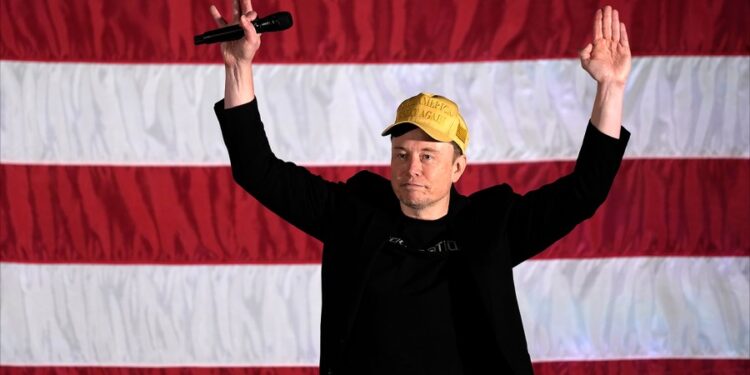
Elon Musk’s super PAC resumed its daily $1 million giveaways to registered voters in swing states Thursday despite receiving a warning letter from the Department of Justice (DOJ).
After appearing to halt the sweepstakes Wednesday, America PAC handed out two $1 million checks Thursday to individuals in Wisconsin and Michigan.
Musk’s pro-Trump super PAC reportedly received a letter from the DOJ’s Public Integrity Section, warning that the sweepstakes could violate a federal law against paying people to register to vote.
America PAC launched the daily $1 million giveaways Saturday and has now handed out six checks. To participate, individuals must be registered to vote in one of seven swing states and have signed the PACs petition supporting free speech and the right to bear arms.
The first three winners were from Pennsylvania, where Musk has focused on boosting former President Trump over the past week with a series of town halls. The fourth winner was from North Carolina.
Musk’s super PAC has taken on a leading role in voter turnout efforts for the Trump campaign in battleground states. However, its boundary-pushing methods have occasionally drawn scrutiny.
Earlier this year, America PAC launched a “register to vote” page on its website that asked individuals in swing states to submit personal information, but did not ultimately direct them to a site to register.
The North Carolina State Board of Elections and the Michigan Secretary of State’s office opened investigations into the PAC’s practices. However, neither brought charges.
A source familiar with the PAC’s efforts told The Hill at the time that the information provided on the site was being used to fill in voter registration forms that were going to be mailed to prospective voters for signing.
The $1 million sweepstakes, which are set to continue through Election Day, have similarly faced pushback.
Nearly a dozen public officials, including several from Republican administrations, urged Attorney General Merrick Garland on Monday to review the PAC’s payments, suggesting that they could be considered illegal payments for voter registration.
“We are aware of nothing like this in modern political history,” the group wrote in the letter obtained by The Washington Post.







